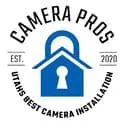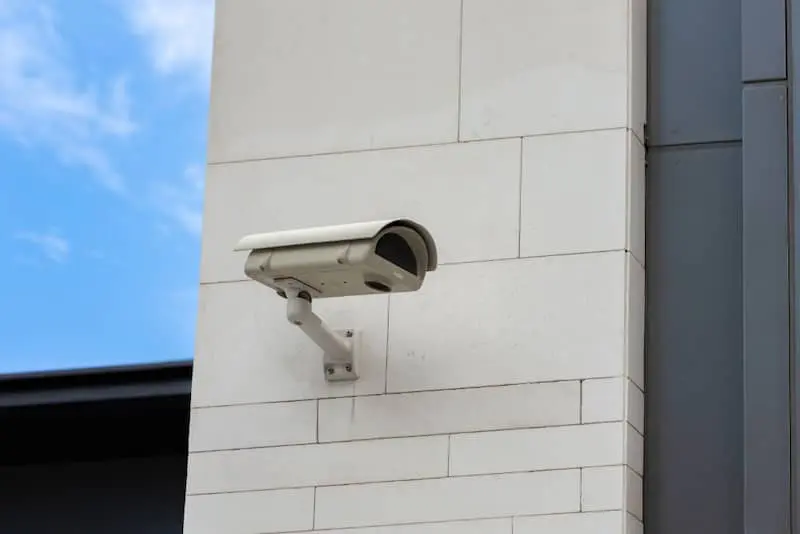Security cameras have become an essential part of home and business security. They are an excellent tool for monitoring activity, deterring crime, and providing valuable evidence when needed. However, the improper placement of outdoor CCTV cameras can lead to unintended consequences, including privacy concerns, legal issues, and disputes with neighbors.
If you position your cameras incorrectly, your neighbors may feel uncomfortable. They may assume you are watching and recording their daily activities. Even if that’s not your intention, these misunderstandings can sometimes lead to tensions, complaints, and even legal action. You invested in security cameras to make your home and neighborhood safer. The last thing you want is for your system to create bad feelings or conflict instead.
Being smart about placing your cameras, following all laws, and openly communicating with neighbors can help you avoid disputes while still maintaining a secure property. This guide will explain how to strategically position outdoor CCTV cameras for maximum security and privacy compliance.
Table of Contents
ToggleUnderstand Local Laws and Privacy Regulations
Before installing any neighborhood CCTV system in Salt Lake, Utah, it’s crucial to understand the legal framework that governs surveillance and privacy. While you can legally record many areas of your property, your security cameras violate privacy laws if they record footage of spaces where people have a reasonable expectation of privacy.
Legal Considerations for CCTV Placement
State and federal laws typically allow homeowners to record footage of public areas and their own property. However, if your camera is pointed even indirectly into a neighbor’s backyard, inside their home, or any private space, it can lead to legal challenges.
In some states, audio recording laws are stricter than video surveillance laws. Many jurisdictions require two-party consent for audio recordings, meaning capturing conversations without explicit permission could violate privacy laws.
Another aspect to consider is Homeowner’s Association (HOA) regulations. If you live in a community governed by an HOA, it may have specific policies on the placement of security cameras. Reviewing these policies and checking with your HOA before installation can help you avoid disputes.
The best approach is to consult a local CCTV installation expert who can assess your property, and recommend the best camera placements. They can help make sure your system is compliant with state laws and HOA regulations.
Focus on Your Property and Entry Points
Positioning outdoor security cameras to focus only on your property is the best way to avoid conflicts. Many disputes arise when cameras appear to be monitoring a neighbor’s yard, front porch, or living space.
Ideal Camera Placement for Maximum Security Without Invasion of Privacy
Instead of mounting cameras randomly, be strategic with their placement so that they cover high-traffic areas while maintaining privacy boundaries.
- Front door and driveway—These are the most common entry points for visitors and potential intruders. A properly placed camera can monitor who comes and goes, package deliveries, and any unusual activity in front of your home.
- Backyard and side gates—Many property owners install cameras to monitor their backyards or side entrances, which are common entry points for burglars. Be careful to angle cameras to focus on your yard only, avoiding views of adjacent properties.
- Shared community spaces— If you live in a townhouse or gated community, consider how your cameras impact shared spaces. While monitoring a shared driveway or entrance is generally acceptable, pointing cameras directly into a neighbor’s unit is not.
Misaligned or poorly placed cameras not only create privacy concerns but can also capture unnecessary footage, increasing the chances of false alarms and storage issues.
Use Privacy Masks and Motion Detection Zones
Some home or business owners have layouts that make it challenging to capture crucial areas without also getting their neighbor’s property in the frame. Modern CCTV systems solve this problem by providing advanced privacy features that allow users to block out specific areas from the camera’s field of view. If your security camera’s lens captures areas beyond your property, privacy masking technology can help eliminate unnecessary footage.
How Privacy Masks Work
Most modern CCTV installations for neighborhood monitoring in Utah allow users to configure their cameras to black out certain sections of the video feed. This means that even if a camera’s wide-angle lens captures a neighbor’s window or backyard, the footage in that area will be blurred or blocked entirely.
How Motion Detection Zones Improve Privacy
In addition to privacy masking, many CCTV systems allow users to configure motion detection zones. These settings enable the camera to record and alert you only when motion occurs in predefined areas.
Motion detection zones save you storage space and bandwidth by reducing unnecessary recordings. They also minimize false alarms by preventing unnecessary notifications when the camera detects motion outside your motion detection zone.
By properly configuring privacy masking and motion detection zones, homeowners can maximize security while maintaining privacy compliance.
Communicate with Your Neighbors
Even if your cameras are positioned legally and ethically, open communication with neighbors can help prevent misunderstandings. If your CCTV system is visible, neighbors may feel uneasy about the possibility of being recorded.
How to Address Neighbor Concerns
- Be transparent—If a neighbor notices your cameras, explain why you installed them and what they monitor.
- Demonstrate camera views—If concerns arise, show them the camera’s live feed to reassure them that you are not monitoring their property.
- Adjust angles if needed—If a camera inadvertently captures footage of a neighbor’s private area, reposition it to avoid unnecessary tension.
Good neighborly relations can go a long way toward preventing unnecessary complaints. Taking the time to address concerns upfront can eliminate potential disputes before they start.
Work with a Professional CCTV Installer
One of the most common mistakes homeowners make is assuming they can install security cameras themselves. DIY installations often lead to poor camera placement, inadequate security coverage, and unintended privacy violations. Choosing to work with a professional has many advantages, including:
- Expert camera positioning keeping security and privacy concerns in mind.
- Compliance with local privacy laws and HOA rules.
- Proper installation of privacy masking and motion detection features.
- Secure, weatherproof installation to prevent tampering or malfunction.
Installing a CCTV system for your home or business is a great way to enhance security. Still, improper positioning can create conflicts with neighbors or even get you in legal trouble. By following best practices—focusing on your own property, using privacy features, communicating openly, and hiring a professional installer—you can maintain security without violating privacy rights or causing disputes.
If you’re considering CCTV security camera installation, talk to an expert installer. They can install your camera system so that it is optimized for security while respecting privacy and community guidelines.
Frequently Asked Questions (FAQs)
1. Is it legal to install a CCTV camera outside my home in Utah?
Yes, as long as your cameras focus on public spaces and your own property. Recording private areas of neighboring homes may be illegal.
2. How do I avoid filming my neighbor’s house with my security camera?
Position your cameras to face entry points, driveways, and your property boundaries. Use privacy masks to block off areas that should not be recorded.
3. Can I point my CCTV at a public street in Utah?
Yes, public areas like streets and sidewalks are typically legal to monitor. However, it’s best to make sure cameras don’t encroach on adjacent private properties.
4. Can my neighbor sue me for having a security camera?
If your camera captures private areas inside their home or backyard, it could lead to legal action. To avoid legal disputes, make sure to mount cameras in compliance with privacy laws.
5. What should I do if my neighbor complains about my security cameras?
Communicate openly. Show them your camera’s field of view to ease concerns. If necessary, adjust the camera angle to alleviate concerns.
6. What features help maintain privacy with outdoor CCTV cameras?
Look for privacy masking, motion detection zones, and limited zoom capabilities to prevent unnecessary surveillance beyond your property.
7. Should I hire a professional for CCTV installation?
Yes. A professional installer ensures proper positioning, compliance with laws, and effective surveillance without privacy issues. A professional will also provide continued support so that you can adjust your system as needed, and it will continue to provide high-quality surveillance.
8. Can I install security cameras in a shared neighborhood area?
It depends on community rules and HOA policies. Some neighborhoods allow CCTV monitoring of shared spaces with consent.
9. What is the best type of outdoor CCTV camera for neighborhood security?
Look for high-resolution, weatherproof, and night vision cameras that provide clear footage with remote access capabilities. A camera with privacy masking and motion detection zones provide additional features to help you comply with privacy laws.

